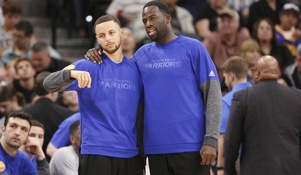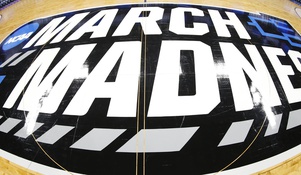Should Sports be Considered Physical Arts?
I don't even remember where or when Meryl Streep made a comment about Mixed Martial Arts (MMA) not being arts, I just remember reading her quote on Twitter. The response from the MMA community was not unexpected and they raised some very valid points. I'll admit I've never watched Ricki and the Flash, but if Piss Christ can be considered art, I would have to think Ricki and the Flash would meet the standard as well. That does make me wonder what the standard is for "art," so I asked Google for the definition.
"The expression or application of human creative skill and imagination, typically in a visual form such as painting or sculpture, producing works to be appreciated primarily for their beauty or emotional power." Now that definition seems somewhat limited, as the examples given don't include a photograph of a crucifix in a jar of urine or a movie about a woman who leaves her family to become a rock star. The secondary definition is a little broader, but still leaves out photos and movies- "the various branches of creative activity, such as painting, music, literature, and dance," although I think it could be argued that anything you can see or watch is in a visual form.
The second definition does include "dance," which seems to open up the door to lots of different types of dancing. Ice Dancing has been an Olympic sport since 1976 and it would seem like figure skating and synchronized swimming would also have many of the same elements. Artistic Gymnastics even includes "art" in it's name. If other types of dancing have received nearly $273 million in funding from the National Endowment for the Arts since 1966, why wouldn't these other forms of dance be eligible for some of that funding as well?
Is it because there is competition involved in sports and awards for achievement and compensation for the participants? If that's the case, I think it's fairly easy to make a case that Hollywood is one of the most-competitive industries on the planet and with their seemingly endless awards- Oscars, SAG, Golden Globes, etc... there are certainly awards involved in the arts, as well as levels of compensation that would rival anything found in any form of competitive sports. Meryl Streep is estimated to be worth $45 million and everyone wants to know how much movies are making at the box office. The exclusion certainly shouldn't have anything to do with whether sports are financially self-sustaining. Outside of football and basketball, virtually every collegiate sport is defined as "non-revenue."
In looking at the definition of art, it could easily be argued that the expression and application of human creative skill and imagination is present in all sorts of sports, from Aaron Rodgers coming up with an idea for a passing route in the huddle to the world-famous "Barking Dog" baseline out of bounds play. Millions of sports fans will quickly describe Aaron Rodgers' ability to throw a pass through a half dozen defenders and into the hands of a target 30 yards away with pinpoint accuracy as a thing of beauty and in terms of the "emotional power" used to describe art, four words that sum up the Wide World of Sports seem to fit that bill- the agony of defeat.
But What is Sport?
It would seem as if sports can definitely fit into the definition of art, but what is the definition of sport? Google tells me sport is, "an activity involving physical exertion and skill in which an individual or team competes against another or others for entertainment." So we see "skill" mentioned again, which seems to be a common thread between art and sport. Physical exertion seems to eliminate bowling, darts, golf, poker, drone racing and any other similar activity that might show up on ESPN, even though participants in those activities can perform them competently while smoking a cigarette. I would think physical exertion would bring some acting roles and certainly ballet into the realm of sports in terms of physical exertion.
Where is the competition element in ballet or acting? While they may be referred to as "tryouts" in sports, I think "auditions" in acting and ballet would certainly count as a legitimate form of competition. Even if they take place behind closed doors, callbacks are the equivalent of the survive and advance mode every team enters in the playoffs. The end of the sports definition describes the purpose of the competition as "entertainment." It seems the more I compare Sports and Entertainment, the more parallels I find. In fact, even the two terms, "Sports & Entertainment" are widely and regularly used together. Last night, I watched an incredible one-man play, McGuire, which was based entirely on the life of a basketball coach, Al McGuire.
I don't know if a group as large as the population of the United States of America will ever agree on the definition of "art" and I'm willing to accept that someone else's definition or interpretation may be very different than my own. I do think the arts are important for our society, so much so, that I believe some taxpayer funding is warranted to help support them. However, as I look at the similarities between sports and the activities supported by the National Endowment for the Arts, I think physical arts, including sports, should be included in that funding as well.
In a world where many things that were once so clearly defined in black and white are now being interpreted, legislated and accepted in endless shades off gray, I don't see how anyone who supports such broad acceptance on a variety of other issues could make a legitimate argument that the physical art of sports should be clearly defined and excluded from the same support afforded to other forms of art.


